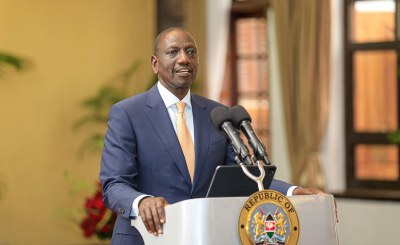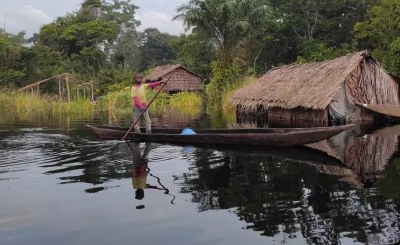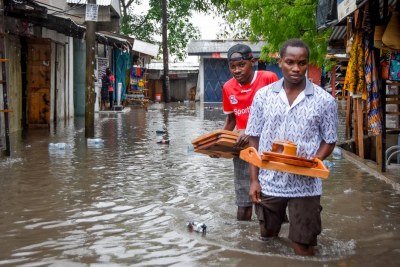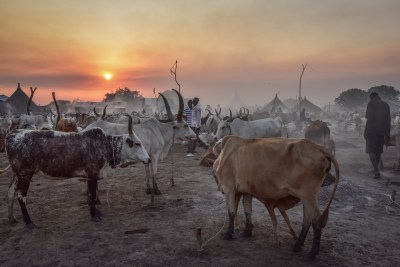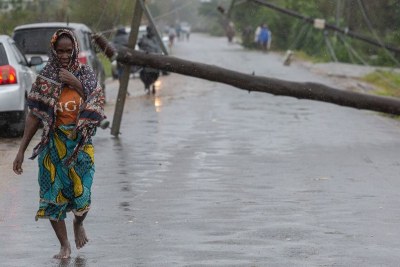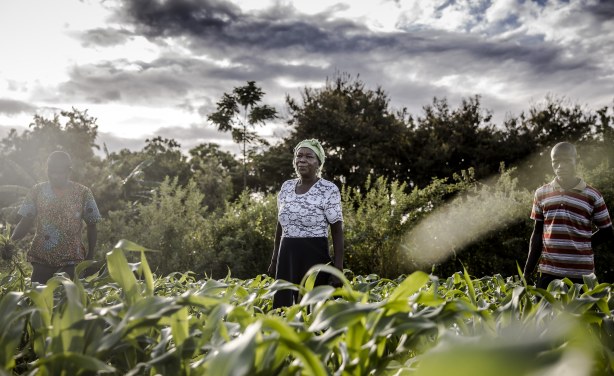-
Africa: How to End Hunger in Sub-Saharan Africa - Fight Inequality, Gender Imbalances and Climate Change
The Conversation Africa, 17 April 2024
A greater part of Africa's population can't afford a healthy diet than any other regional population. Food insecurity in sub-Saharan Africa is caused by climate change, high levels… Read more »
-
Africa: Can We Have Our Food, and Equality Too?
allAfrica, 12 April 2024
The world faces a daunting challenge: securing food for a growing global population while navigating the complexities of climate crisis and entrenched gender inequalities. These… Read more »
-
Africa: Women Affected By 'Gender-Biased' Climate Change Deserve Justice
IPS, 11 April 2024
While research into the unequal impacts of climate change on women is growing, more is needed to enable them to realize their rights to climate justice. Read more »
-
Kenya: African Climate Summit Propels Ruto to Time's Top 100 Influential People
Business Day Africa, 18 April 2024
Kenyan President William Ruto has earned recognition as one of Time magazine's top 100 influential people, a testament to the country's achievement in hosting a successful Africa… Read more »
-
South Africa: Climate Change Is Causing Marine 'Coldwaves' Too, Killing Wildlife
The Conversation Africa, 15 April 2024
The effects of ocean warming are profound and well-documented. But sometimes changes in the patterns of winds and ocean currents cause seawater to suddenly cool, instead. Read more »
-
Africa: The Climate Alarm Is Ringing - It's Time to Stop Silencing It
IPS, 12 April 2024
The heat records keep tumbling - 2023 was the hottest year in recorded history. Extreme weather events keep mounting up. And yet the voices most strongly calling for action to… Read more »
Collective Efforts Key to Ending Hunger in Africa
Sub-Saharan Africa faces significant challenges in achieving food security, with many of its population unable to afford a healthy diet due to factors such as climate change, poverty, rapid population growth, low economic growth, inadequate infrastructure, and conflicts, writes Helen Onyeaka for The Conversation Africa.
Women, who play a critical role in agricultural labor, encounter limited access to resources, exacerbating food insecurity. However, various initiatives and projects across the region, such as community-led sanitation in Senegal, agricultural transformation in Rwanda, cash transfer programs in Malawi, conservation agriculture in Zambia, and smallholder farmer programs in Ethiopia, have shown promising results in promoting the right to food and enhancing food security.
These projects emphasize community-based approaches, support from governments through direct cash transfers, and climate-smart practices. Moving forward, governments must recognize the right to food as a fundamental human right and work collaboratively with communities to establish equitable and sustainable food systems, incorporating traditional knowledge and innovative technologies to tackle climate change and improve food access for all.
InFocus
-
The Tanzanian government has announced that 58 people have been killed by flooding and landslides caused by persistent heavy rainfall across the country. Flood waters swept ... Read more »
-
A groundbreaking study conducted by Yolandi Ernst and Sally Archibald from the University of the Witwatersrand has revealed that, in the past decade, the African continent ha Read more »
-
Mozambique faces renewed crisis as Storm Filipo hits, just a year after Cyclone Freddy. Read more »
